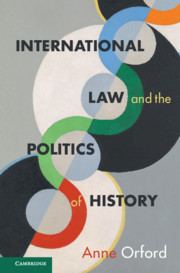Book contents
- International Law and the Politics of History
- International Law and the Politics of History
- Copyright page
- Contents
- Acknowledgements
- 1 Neoformalism and the Turn to History in International Law
- 2 Situating the Turn to History in International Law
- 3 History and the Turn to the International
- 4 History’s Lawyers
- 5 The Past in the Practice of International Law
- 6 The History of What?
- 7 Why Study the Past of International Law?
- Bibliography
- Index
3 - History and the Turn to the International
Published online by Cambridge University Press: 18 June 2021
- International Law and the Politics of History
- International Law and the Politics of History
- Copyright page
- Contents
- Acknowledgements
- 1 Neoformalism and the Turn to History in International Law
- 2 Situating the Turn to History in International Law
- 3 History and the Turn to the International
- 4 History’s Lawyers
- 5 The Past in the Practice of International Law
- 6 The History of What?
- 7 Why Study the Past of International Law?
- Bibliography
- Index
Summary
This chapter relates the turn to history in international law to the corresponding international turn taken in the discipline of history. It explores the effects of translating the stakes of those turns into a technical debate involving abstract claims about the proper scientific methods for understanding the past of international law. The chapter analyses the wide-ranging set of arguments about the scientific nature of empiricist history and the partisan character of international legal arguments that have accompanied the turn to history. It argues that international lawyers have been uncritically receptive of the idea that empiricist historical methods offer a set of technical rules to which legal scholars should conform when writing about the past.
Keywords
- Type
- Chapter
- Information
- International Law and the Politics of History , pp. 70 - 104Publisher: Cambridge University PressPrint publication year: 2021

